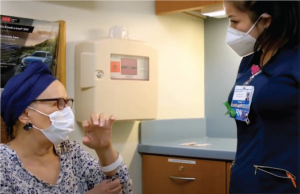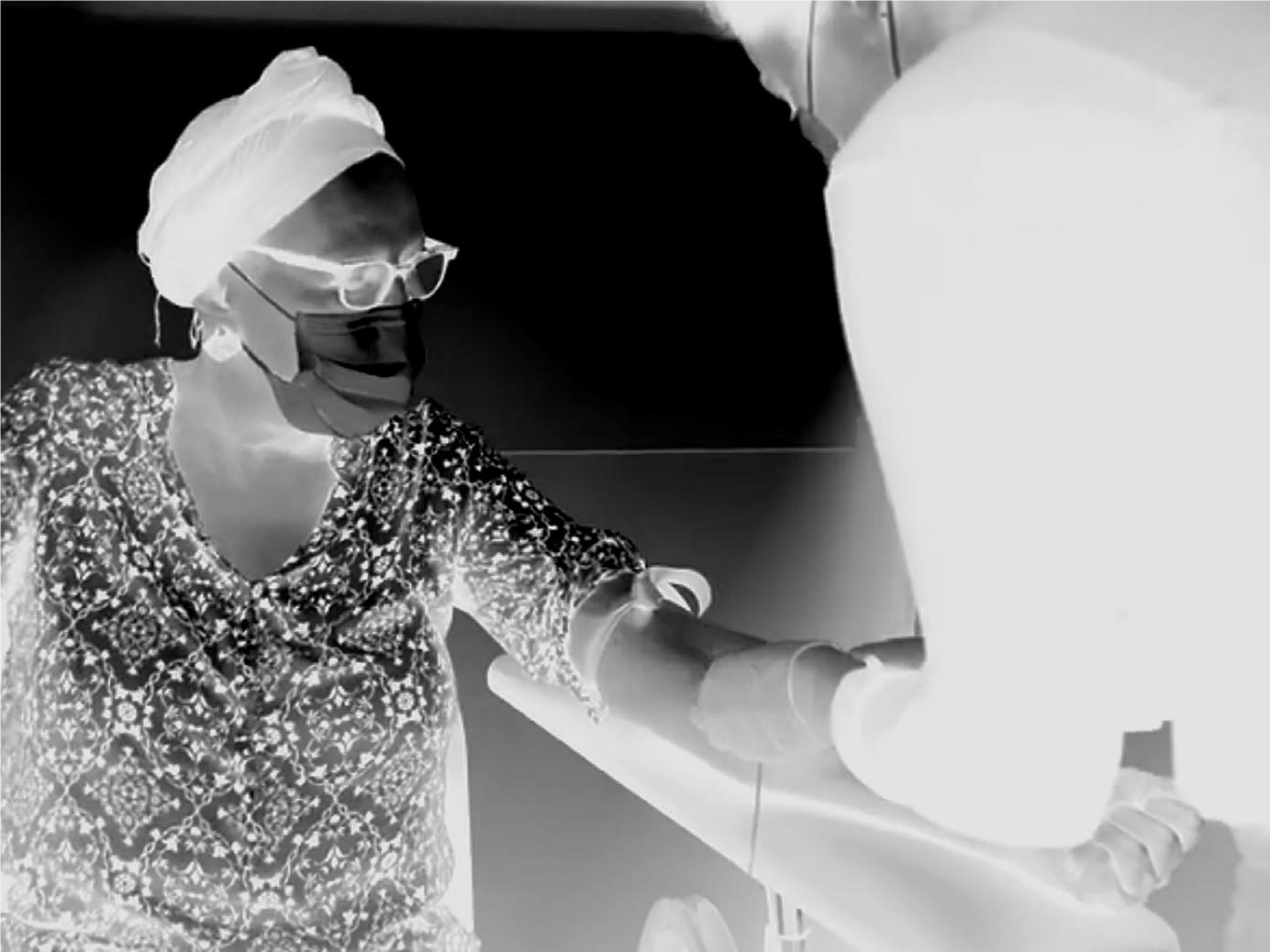An ailing photographer provides a snapshot of the integrated care experience at Trinitas.

Trinitas Regional Medical Center
In 2020, Brazilian photographer Sonia Braga came to New Jersey to help care for her daughter and grandson. She had been diagnosed with cancer in her home country, for which she had received treatment and believed she was cured. Unfortunately, prior to her arrival in the US, the cancer had returned and had metastasized. Braga transferred her care to Trinitas, and informed her medical team that she had also been diagnosed with depression, starting at the age of 11. Over the course of many decades, Braga had seen numerous doctors who prescribed different medications, all of which had unpleasant side effects.
“When I met Sonia, her journey was already a long journey and the first thing that struck me was that it was taking a huge toll on her, not only physically but mentally,” says Dr. Michelle Cholankeril (above), the hospital’s Division Chief of Medical Oncology. “I felt that it might be beneficial to send her for a wellness checkup, because it’s really important that the medications we give in oncological services work well with the medications that are used for psychiatric illness.”

Trinitas Regional Medical Center
In a traditional model of healthcare, patient experience is often siloed into different pieces. In a case like Braga’s, for instance, it would probably involve finding a medical provider to address her physical symptoms and then going out and identifying a behavioral health provider to talk about the mental side of the equation—and then coping with the added challenge of cobbling all the various pieces together.
“What we do at Trinitas is offer an integrated-care experience that relieves the patient of the burden of having to try to navigate a system themselves,” explains Lisa Dressner, VP of Behavioral Health, who adds that this approach “provides the best possible outcomes for our patients.”
Braga enrolled in an eight-week outpatient program that looked at the entirety of her treatment and prescribed the appropriate medication for her depression.
“The program made so much difference,” Braga says. “I suffer from depression, but that doesn’t make me a weak person. I’m actually a strong person. I worked with a psychologist and was able to talk and explain what I was going through.”
At the same time, Dr. Cholankeril was able to prescribe a medication that she suspected would be a good fit—not just for the cancer, but for Braga as a human being.

Self-Punishment • Sonia Braga
“The second and third time I saw Sonia, there was such a huge difference,” says Dr. Cholankeril. “It was really nice to see.”

Trinitas Regional Medical Center

The Girl Outside • Sonia Braga
Braga returned to Brazil and, unfortunately, began experiencing abdominal pain, which was caused by metastatic cancer in a different area. This time, however, she remained positive as her doctors put her on alternate medication. Dr. Cholankeril believes that the therapy Braga received at Trinitas helped her accept the recurrence and remain in high spirits.
Braga agrees.

The Old Girl • Sonia Braga
“The mental health treatment helped me to deal with the cancer,” she says. “I want to go through this in the best way, to enjoy every step. I will use this cancer to be better, to live better.”
This is clearly evident in her photography, she adds.
“If you look at the work I did before, while suffering from depression, you can see the pain,” she says. “After that, my photos have more life, more hope.”
At Trinitas, Braga says, they made her feel welcome and special, treating her as a person, not just a patient.
“And it’s not just the doctors,” she points out. “It starts at the front desk. You feel safe here…because everything works with love.”





